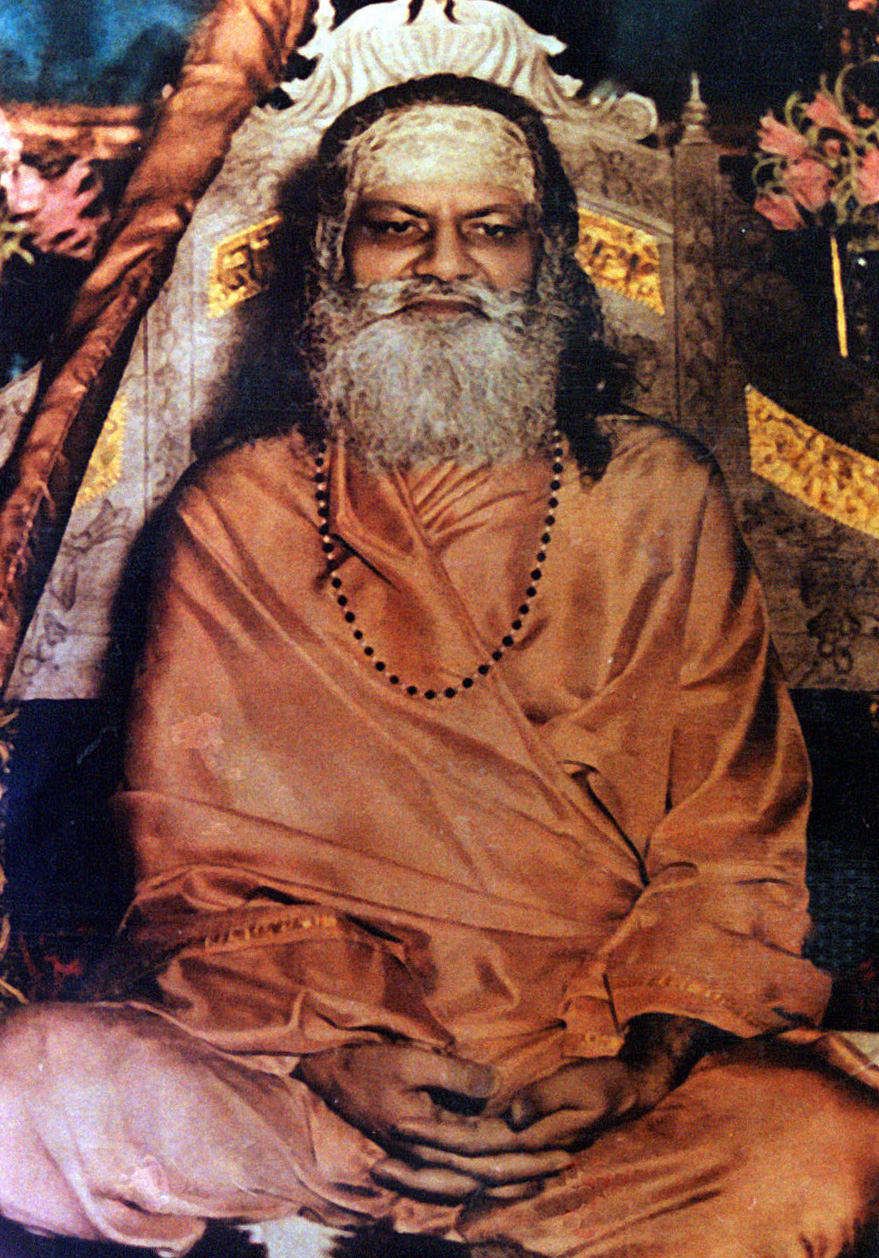
Guru Dev - Shankaracharya Swami Brahmananda Saraswati
Damage caused in the beginning [of one's life] can be rectified,
but damage caused at the end [of one's life] cannot be corrected
translation by Premanand © Paul Mason 2021
Who gets
to attain "paramgati",
the 'Supreme goal'? Explaining this, Bhagwan says -
अन्तकाले च मामेव स्मरन्मुक्ता कलेवरम् ८ - ५
यः प्रयाति त्यजन्देहम य याति पमाण गतिम् ८ -१३
antakäle
ca mämeva smaranmuktä kalevaram
8: 5
[Bhagavad Gita ch8:v5/v13]
that
is to say, 'the one who in the end (at the hour of death), departs from
the body remembering me, attains "paramgati" the Supreme goal.'
Make effort from now onwards such that your final time does not get spoiled. Only when you practice Bhagwan's worship from now onwards practice Bhagwan's worship, so that you will be able to contemplate thereof in your final moments. At this time, if your mind will be predominantly occupied by "samsari" actions, then even in your final time you will contemplate the same. Therefore, from right now, be cautious, that you remember Bhagwan observing "swadharma", performing personal duties in a righteous and proper manner.
Whatever happened in the beginning has already happened; but now strive to set your final time right because if a mistake occurs in the final time, it will result in a loss for up to many lifetimes. Damage caused in the beginning can be rectified, but damage caused in the end cannot be corrected. For this very reason remain alert from now onwards.
Make effort from now onwards such that your final time does not get spoiled. Only when you practice Bhagwan's worship from now onwards practice Bhagwan's worship, so that you will be able to contemplate thereof in your final moments. At this time, if your mind will be predominantly occupied by "samsari" actions, then even in your final time you will contemplate the same. Therefore, from right now, be cautious, that you remember Bhagwan observing "swadharma", performing personal duties in a righteous and proper manner.
Whatever happened in the beginning has already happened; but now strive to set your final time right because if a mistake occurs in the final time, it will result in a loss for up to many lifetimes. Damage caused in the beginning can be rectified, but damage caused in the end cannot be corrected. For this very reason remain alert from now onwards.
1. The
term 'aadi' in Sanskrit/Hindi means 'beginning', 'origin'. Here it refers to
the early stages of life.
2. The term 'ant' in Sanskrit/Hindi means 'end', 'completion', 'death'.
3. The 'Supreme Goal' refers to the highest condition which is the merging of the soul with the Ultimate.
4. Swadharma is that action which is in accordance with one's nature and duties.
2. The term 'ant' in Sanskrit/Hindi means 'end', 'completion', 'death'.
3. The 'Supreme Goal' refers to the highest condition which is the merging of the soul with the Ultimate.
4. Swadharma is that action which is in accordance with one's nature and duties.
~